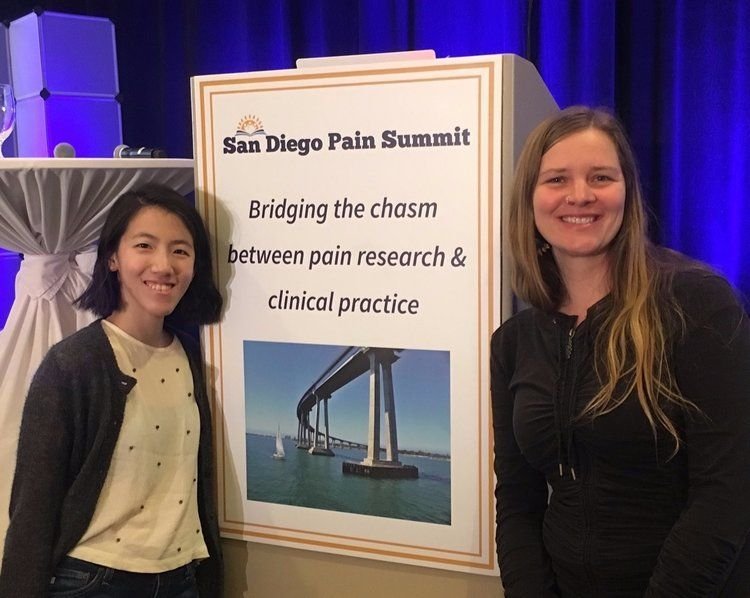San Diego Pain Summit
Fifteen RMTs from British Columbia attended the San Diego Pain Summit. The annual event brings together leading researchers and practitioners to share the latest developments in pain research and best practices. We were able to meet some of our pain science heroes and even managed to go for a bike ride to a beachside taco stand!
This year’s summit focused on the patient experience and included presentations from patients and leading researchers and practitioners (topics included below).
Wendy and Jenn at the San Diego Pain Summit
BC RMT’s represent
We heard from patients and researchers who talked about the importance of the language we use, and about the limitations of traditional approaches such as the zero to ten (0-10) pain scale.
Presentations included:
Dr. Antonio Damasio: About the physiology of feeling
Sharna Prasad: As providers what we say matters...matters a lot
Dr. Mark Bishop: You, them, us: What you expect is what you get
Shelly Prosko: Insight into compassion: The foundation of pain care
Dr. Karen Davis: Are we ready to translate research into practice? How brain imaging studies of chronic pain are being used to develop personalized pain management treatment plans
Tim Beames: My experience of my body is what I say it is
Kathryn Schopmeyer: I am not a number: Understanding and improving pain assessment mandates in healthcare
Alison Sim, Dr. Bronnie Thompson, Keith Meldrum and Kira Stoops: A patient panel: Pain from the patient’s perspective



